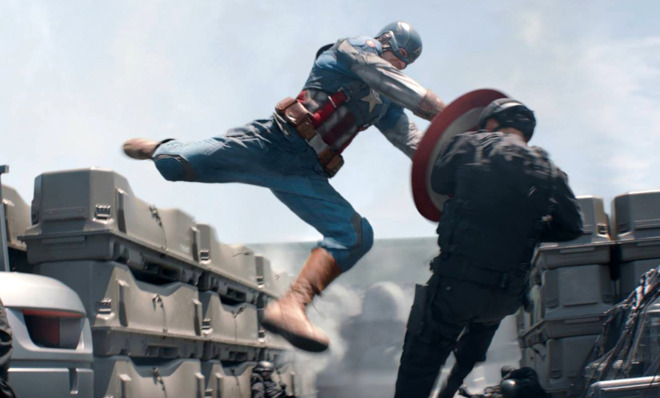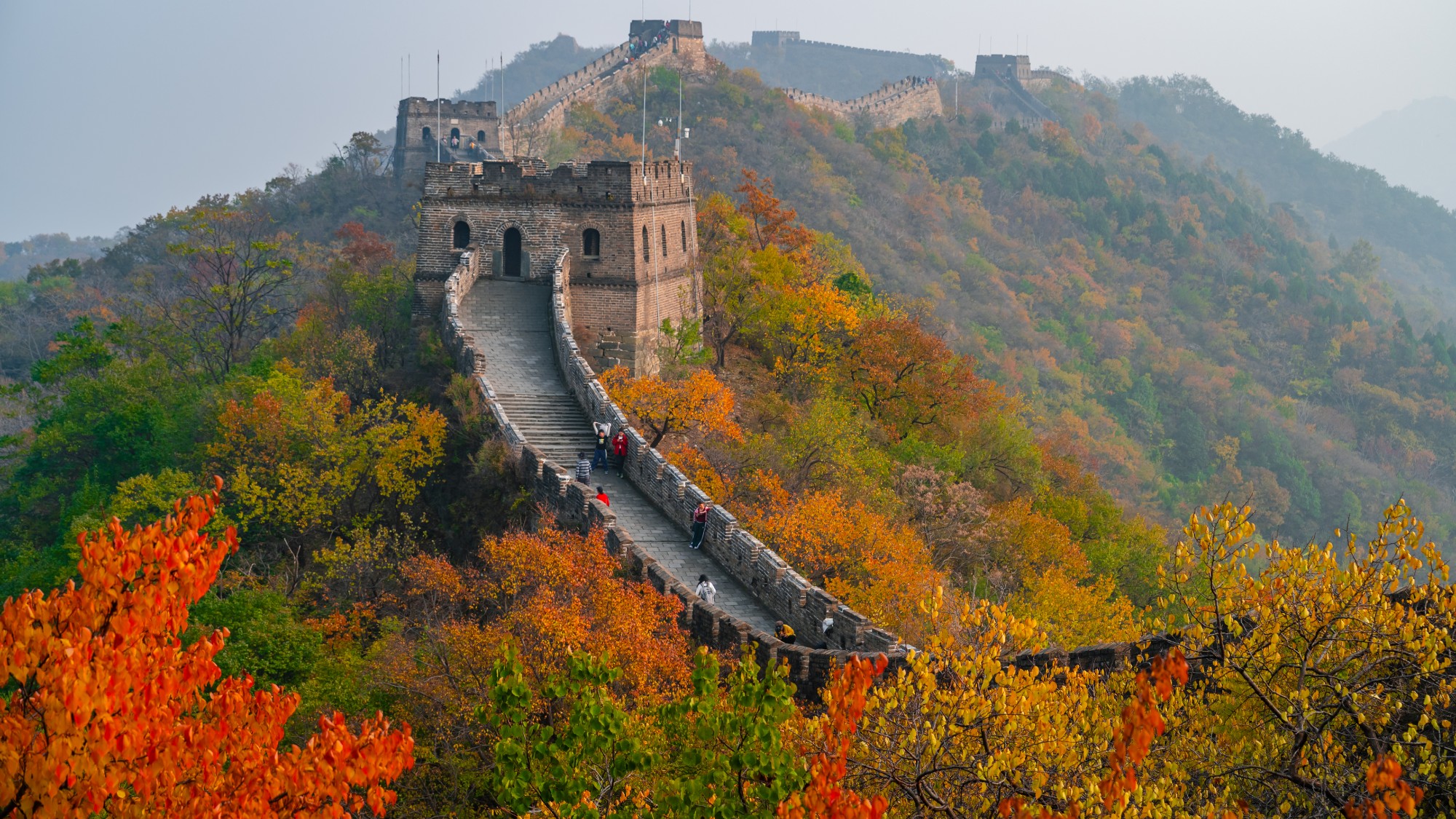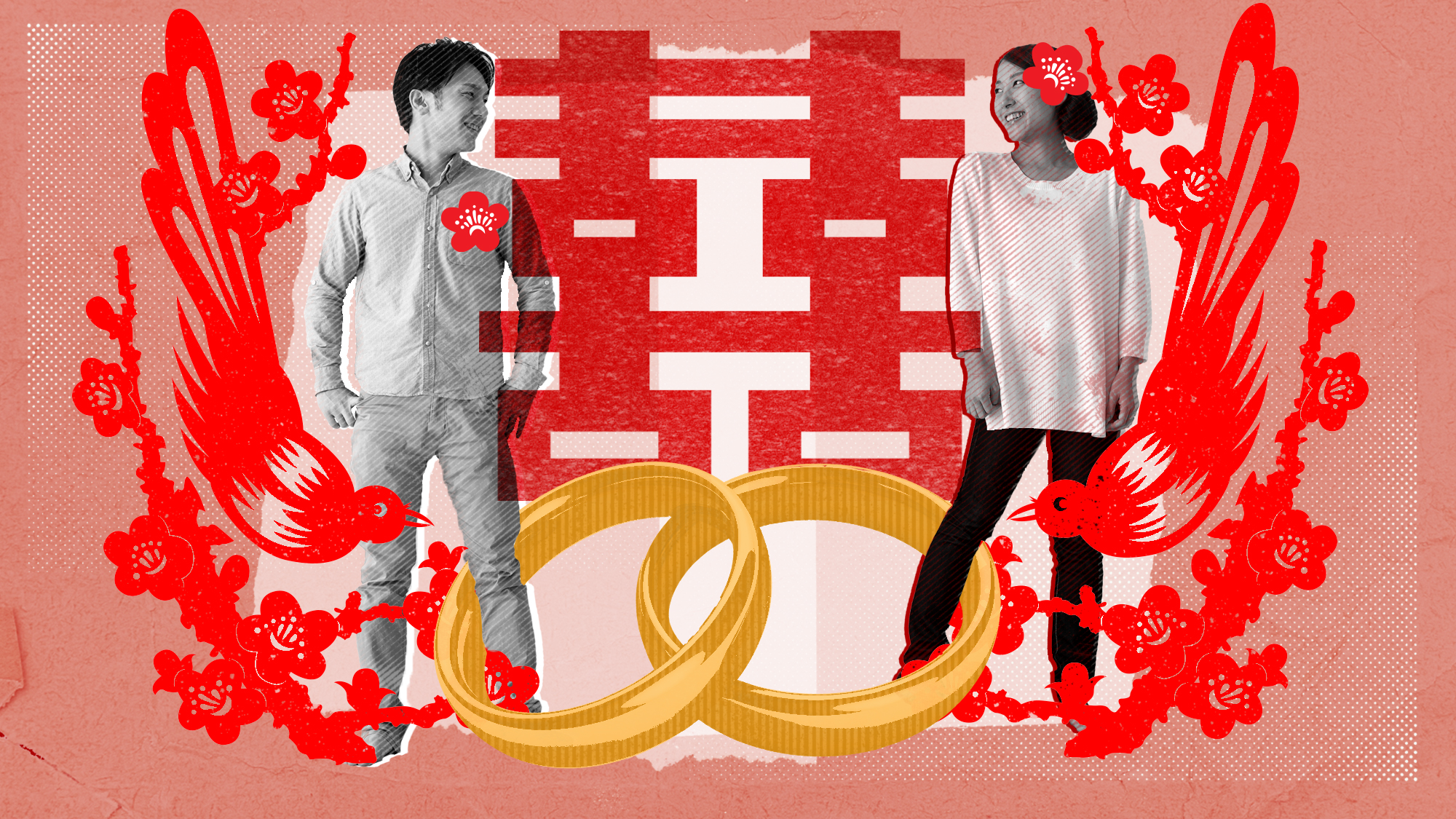How Captain America won over China
A patriotic U.S. film is raking in the renminbi. Why?


SHANGHAI — Last week, while U.S. Secretary of Defense Chuck Hagel's trip to China was underscoring bilateral tensions between the two powers, the Chinese masses were busy embracing another U.S. visitor. The Marvel superhero sequel Captain America: The Winter Soldier— which (spoiler alert) sees World War II hero Steve Rogers adjusting to life in the 21st century after a 70-year-long sleep, all while battling nefarious elements including spies and Nazis within his employer, a government agency called S.H.I.E.L.D. — has cleaned up at the Chinese box office, selling over 5.6 million tickets and raking in $39.2 million in its opening weekend. That's less than the $95 million the film earned in its debut weekend in the United States, but it's not shabby for China, besting even the opening weekend for 2013's Iron Man 3, which went on to become China's second-highest earning film in 2013. Chinese viewers have embraced the film on Douban.com, China's leading social site for film buffs. Over 20,000 Douban users have collectively given the film an average score of 8.2, edging out even acclaimed Hong Kong director Wong Kar Wai's 2000 tour de force In The Mood for Love.
Why has an avowedly all-American hero proved so popular here? Launching the film on a three-day holiday weekend shortly after its stars toured Beijing certainly didn't hurt. But Winter Soldier also resonates because it keeps the hero's fundamental patriotism intact while modernizing his conflict for a complicated new era, pitting him against enemies burrowed deep within the government he serves. "[The new villain] is the very country he loves and protects," writes one Douban reviewer. "To love one's country isn't the same as loving one's government: This is the main draw of Captain America."
These and other Douban authors implicitly acknowledge that a film tackling such themes — even hidden behind the guise of an imagined superhero — could never be made under the watchful eye of China's image-conscious government and its army of censors. One online review, titled "Why is there no Captain China?", tackles the question explicitly. The post argues that Chinese censors would never allow scenes of iconic buildings like Tiananmen Gate or state-run China Central Television's iconic headquarters, both in Beijing, being destroyed: How could such a thing be possible, after all, under the ruling Communist Party's protection? (A superhero would be unnecessary because China's unrivalled People's Armed Police would catch the villain and send him off to re-education through labor.) The best a Captain China could hope for, the user argues, would be a job as a Beijing policeman. Not that China would ever have true villains anyway; would-be filmmakers, the user concludes, shouldn't even think about depicting enemies within the ranks of the government.
The Week
Escape your echo chamber. Get the facts behind the news, plus analysis from multiple perspectives.

Sign up for The Week's Free Newsletters
From our morning news briefing to a weekly Good News Newsletter, get the best of The Week delivered directly to your inbox.
From our morning news briefing to a weekly Good News Newsletter, get the best of The Week delivered directly to your inbox.
Taken together, the mass of Douban reviews also suggest that Winter Soldier continues a tradition in which Hollywood's success in China inspires navel-gazing about the country's domestic film industry and broader culture. In a review titled "Why do we need Captain America?", one user bemoans the lack of masculine heroes in current Chinese films, and laments that earlier folk heroes like kung-fu legends Huang Feihong and Ip Man are no longer suited to the silver screen. These protagonists are "too nationalist," she writes, fending off as they do a parade of foreign devils and other villains from the bad old days of China's "century of humiliation" at the hands of other powers like Japan and Britain. It's a theme for which many other members of Douban's relatively liberal user base have evinced more than a little fatigue.
It would be folly, of course, to chalk Winter Soldier's success in China up to its politically resonant plot alone. Some of the factors at play behind Captain America's successful Chinese conquest are rather simple. One review entitled "The male lead is handsome — that's the only reason" is representative of a sizable star-gazing chunk of the short reviews, while the most popular full-length review is a playful bromantic interpretation of the relationship between two male leads. The appeal of big explosions and eye-catching stars, it seems, transcends borders.
More from Foreign Policy...
- The Chinese military can "fight any battle and win"
- Chinese state media slams Microsoft
- Infographic: Jesus more popular than Mao on China's Twitter
A free daily email with the biggest news stories of the day – and the best features from TheWeek.com
-
 August 31 editorial cartoons
August 31 editorial cartoonsCartoons Sunday’s political cartoons include FEMA's new scheme, Gavin Newsom's antics, and a clue in the Epstein files
-
 Disarming Hezbollah: Lebanon's risky mission
Disarming Hezbollah: Lebanon's risky missionTalking Point Iran-backed militia has brought 'nothing but war, division and misery', but rooting them out for good is a daunting and dangerous task
-
 Woof! Britain's love affair with dogs
Woof! Britain's love affair with dogsThe Explainer The UK's canine population is booming. What does that mean for man's best friend?
-
 A guide to the Great Wall of China
A guide to the Great Wall of ChinaThe Week Recommends Experience this architectural feat
-
 How to go on your own Race Across the World
How to go on your own Race Across the WorldThe Week Recommends The BBC hit show is inspiring fans to choose low-budget adventures
-
 Holy mate-trimony: the rise of 'friendship marriages'
Holy mate-trimony: the rise of 'friendship marriages'Under the Radar Young people in China, Japan and the US are saying 'I do' to platonic unions, to alleviate social pressure or loneliness and access financial benefits
-
 Following the Tea Horse Road in China
Following the Tea Horse Road in ChinaThe Week Recommends This network of roads and trails served as vital trading routes
-
 Hands-on experiences that let travelers connect with the culture
Hands-on experiences that let travelers connect with the cultureThe Week Recommends Sharpen your sense of place through these engaging activities
-
 Hotel-hopping in Shanghai
Hotel-hopping in ShanghaiThe Week Recommends From Michelin-starred restaurants to tranquil spas, these are the swankiest spots in the city
-
 One great cookbook: 'Every Grain of Rice' by Fuchsia Dunlop
One great cookbook: 'Every Grain of Rice' by Fuchsia DunlopThe Week Recommends The alchemy of Chinese home cooking made accessible
-
 A popular new video game is at the center of China's censorship dispute
A popular new video game is at the center of China's censorship disputeIn the Spotlight 'Black Myth: Wukong' has more than a million players, but some are criticizing China's oversight of the game